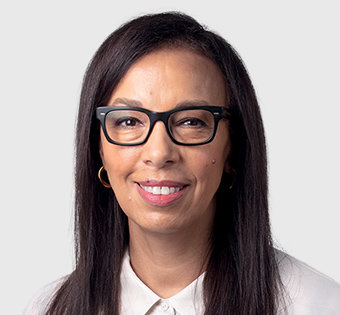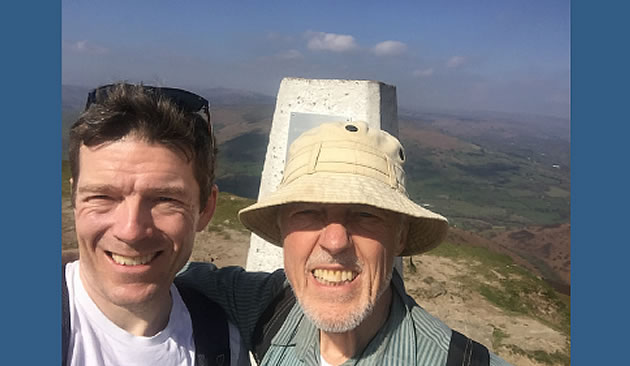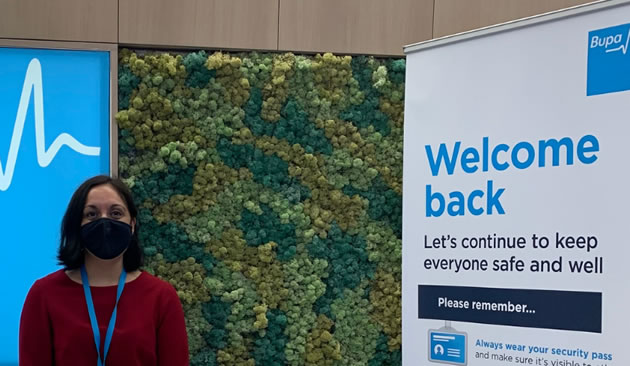It is a strange time to be a black woman, mother, colleague.
Frankly, I feel sad and disappointed with the world. Disappointed that here we all are in the 21st Century still grappling with this. I had thought we were better than this. We’re more educated. We know and understand each other better.
But the awful events in the US have caused us all to stop and reflect that – yes, there is better representation, and more openness among people. But, no, there is still so much more to do. This is not a US issue. It is a matter for us all.
I read something that said it is no longer enough to simply not be racist. We need people to be anti-racist. Neutrality has not worked. We need people to speak, and act against it. There are seemingly little – and often unconscious – examples of it everywhere. Like weeds in a garden, you must pull them out before they grow and take over.
I’m the child of a black father and a white mother. I was brought up with the stories of racism that my father and his generation lived through. I recall at the age of 12, visiting my cousins in the US and being told there were certain states we shouldn’t go to; where we would not be safe.
It felt very far from my own experience here in the UK. I know many Black people have experiences of being singled out or feeling outnumbered. I attended a girls’ school in Hackney which was very diverse – black, Asian, Jewish, white girls thrown together. Differences were acknowledged, but accepted. The Asian girls wore trousers under their skirts – no one commented. The Jewish girls left school at lunchtime on Fridays – no one questioned or complained. There was a tolerance that came from familiarity.
So talking to my daughters about the events of the past week, and the age old stories that surround it has been confronting, upsetting and deflating.
As a doctor, I’ve lived and worked in many countries. My take is that we are so much more alike than we are different. We all worry about our children, fear for our health, want to be loved. The differences we have are what make us interesting. They bring flavour and variety - your haggis is my sheep intestine. They should be the source of fascination and curiosity, not hatred or fear.
My generation were urged to get a profession under your belt. Once you have that qualification, it can’t be taken away from you. No matter how racist people want to be, however nasty and discriminatory they are, you will always get a job. Medicine, law, engineering – these are roles where people are less able to take one look at you and say ‘no thanks’.
In the UK, the health and care systems have always had high representation of minorities. So many of our nurses, carers, doctors, dentists, and support staff are Black, Asian and Minority Ethnic (BAME). And it is worth being clear that support staff are as vital as clinicians. You can’t run a hospital or care home without cleaners, chefs, laundry and maintenance.
A number of my white colleagues at Bupa have asked me what I and other BAME colleagues need from them. I can’t claim to speak for others, and I certainly don’t have the answers. But I am glad they are acknowledging and asking. As any health professional will tell you, recognising an issue is the starting point for treatment.
Bupa is an incredibly open and welcoming organisation, with plenty happening on diversity and inclusion. Our Executive Team (of which I am a member) and our CEO (who is a woman) were quick to make their abhorrence of racism very clear, and messages of support are being shared across the organisation. When I’m in the office I – and everyone else – walks past a statement saying ‘Everyone’s Welcome’ (a practice that is echoed in many Bupa offices worldwide). But lack of racial diversity is something I’ve got used to throughout my corporate life. We can’t assume it’s going to disappear by osmosis.
I’m reminded of a time where I was part of an interview panel. We’d just seen a candidate who wasn’t right for that particular role (for reasons unrelated to his race). I turned to my colleagues after he’d left and said: ‘That’s such a shame, it’s so hard for young black guys to get jobs.’ They looked at me blankly and said ‘Why would you say that?’ My colleague was not biased or prejudiced. They were simply not aware enough to understand.
Understanding is, in the end, what the world needs. In ‘Let’s talk about race’ Sandra Kerr, notes that BAME employees report that employers are uncomfortable talking about race with conversations around age, gender and sexuality much easier to have. She produced a guide to spark conversations and get co-workers talking about race and ethnicity, discrimination, diversity and inclusion in an environment of ‘uncomfortable confidence and respect’. It’s well worth reading.



